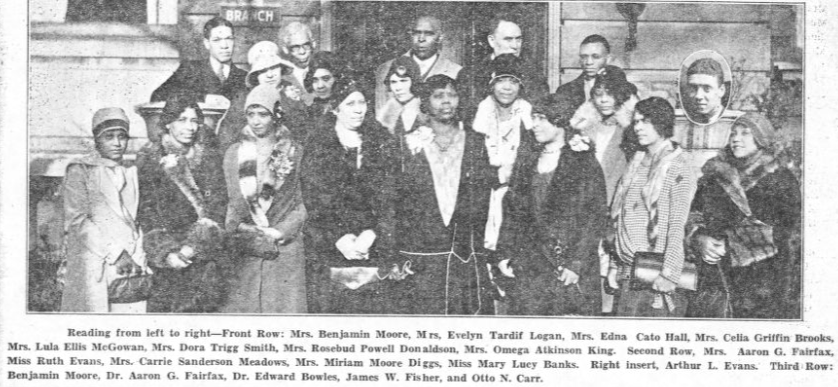Come Friday, the community celebrations marking Juneteenth will begin, from the Beck Cultural Center to Haley Heritage Square to the Knoxville Botanical Gardens.
A wealth of information on the Black experience in Knoxville is available online in the McClung Historical Collection at Knox County Library. The Knoxville College newspaper, The Aurora, can be found there with editions dating back to the 1890s. I thought I’d have a look at what was being written about a century ago.
The article that stood out to me was presumably written by then editor, professor J. L. Cary. It was about what came to be known as The Great Migration. Between 1910 and 1970, it is estimated that roughly 5 million Black Americans left the south and the oppression of Jim Crow laws for better opportunities in the north. It was written 27 years after the disaster of the Plessy v. Ferguson Supreme Court ruling and the lie of “separate but equal.” Please note this is copied, as written, in the nomenclature of the time:
“Let us be” has been a doctrine of the South ever since the settlement of Jamestown. Especially is this true when someone outside that section says something about the race problem. Every Negro who stands up like a man and asks for justice for his people is regarded in the South as radical and dangerous. On the other hand, the Negro who will not tell the whole truth about the feelings and desires of his people is hailed as the safe leader of his people. As a matter of fact, the latter is the more dangerous, because he will not tell the truth. The Negro population is tired of being treated as beasts of burden…
The following information, under the caption “The Negro Exodus,” was taken from one of our local papers: A Washington dispatch notes that a very large number of southern negro farmers have gone north in the past year. It is noted that out of a total of 32,000 farm hands in the state of Georgia approximately 13% of them have moved north during the last 12 months and the movement continues. There had been before a large abandonment of acreage in that state, and it is anticipated there will be further abandonment. About 15,000 negro farmers have left Arkansas in the past twelve months and as many as 4,500 hare gone from Tennessee since April of last year…
A general movement of colored labor from the cotton states would be felt, not alone in the south, but in the whole country, in other parts of the world, for that matter. For it is a fact that a large portion of the cotton supply for the world comes from the American states of the south, southern plantations. It must be admitted that the people of the south have in many respects treated those of the negro race with as little consideration as they treated their domestic animals. More northern people have sympathized with the race, in words spoken and written, than has been the case in the south… The negro came to this country through the exercise of force, he has been here long enough for it to be his country, he will remain and will not be forced to leave. He will work and live where he is best treated. – The Aurora, May 1923.
Later that same year, the Knoxville College Club of Chicago was organized. There were enough alumni in the Windy City to warrant a club. By 1929 the club was planning a return to Knoxville College for Homecoming, with an article in The Aurora noting “the 50th Anniversary in 1925 was the last real get-together for grads and former students.”
This particular edition of The Aurora from May 1929 was dedicated to the Chicago club, with another article saying “Through the years the travelers started here have in increasing numbers found Chicago as dwelling ground… The great railroads that center here and the many plants and industries just add to the reason for calling Chicago the queen of these unsalted seas or the hub of the universe. Yet in this Chicago, as everywhere, always do these Knoxville College travelers remember that their real commencement was from that humble institution in the East Tennessee hills.”
Little did they know just a few months down the road, The Great Migration would crash head on into The Great Depression.
Beth Kinnane is the community news editor for KnoxTNToday.com

